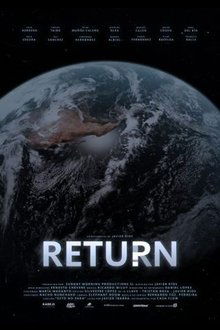Data—arguably the world’s most valuable asset—is being weaponized to wage cultural and political wars. The dark world of data exploitation is uncovered through the unpredictable, personal journeys of players on different sides of the explosive Cambridge Analytica/Facebook data story.
Related Movies

Land Without Bread (1933)
An exploration —manipulated and staged— of life in Las Hurdes, in the province of Cáceres, in Extremadura, Spain, as it was in 1932. Insalubrity, misery and lack of opportunities provoke the emigration of young people and the solitude of those who remain in the desolation of one of the poorest and least developed Spanish regions at that time.

Railway Station (1980)
Warsaw's Central Railway Station. 'Someone has fallen asleep, someone's waiting for somebody else. Maybe they'll come, maybe they won't. The film is about people looking for something.
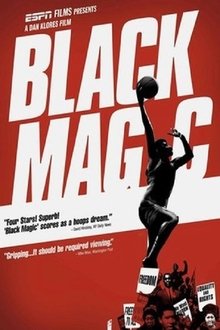
Black Magic (2008)
Examines Civil Rights-era America through the prism of basketball at historically black colleges and universities.

The Day Will And Kate Got Married (2021)
Ten years on, The Day Will and Kate Got Married celebrates that momentous day through the memories of family, friends and insiders who played a part in it, including Kate’s uncle, Gary Goldsmith, speaking exclusively in his first ever TV interview, former Metropolitan Police commander Bob Broadhurst who was in charge of security on the day, royal historian Robert Lacey, plus the dress’s embroider, the cake-maker, choristers and Middleton family friends and neighbours.
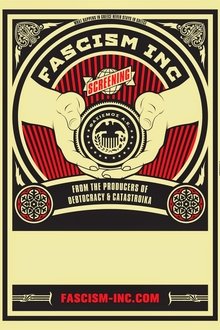
Fascism Inc. (2014)
Unknown short stories from the past, the present and the future of fascism and its relation to the economic interests of each era. We will travel from Mussolini’s Italy to Greece under the Nazi occupation, the civil war and the dictatorship; and from Hitler’s Germany to the modern European and Greek fascism.
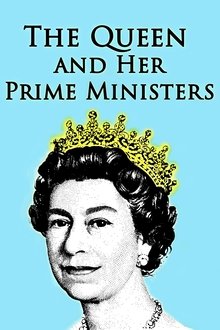
The Queen and Her Prime Ministers (2022)
Queen Elizabeth has worked with 14 Prime Ministers, including holding confidential weekly meetings. It is not known whether she has influenced her Prime Ministers, or what happens when they clash.

Reiwa Uprising (2019)
Kazuo Hara follows Ayumi Yasutomi, a transgender candidate, who is also a Tokyo University professor, as she embarks on a national campaign for a seat in Japan's Upper House.
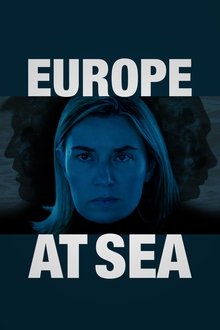
Europe at Sea (2017)
Exclusive access to chief diplomat of the EU Federica Mogherini as Europe faces a crumbling world order.

The Prostitutes of Lyon Speak (1975)
Documentary about the Lyon sex workers who occupied the church of St. Nizier on June 3, 1975.

White Walls Say Nothing (2017)
Buenos Aires is a complex, chaotic city. It has European style and a Latin American heart. It has oscillated between dictatorship and democracy for over a century, and its citizens have faced brutal oppression and economic disaster. Throughout all this, successive generations of activists and artists have taken to the streets of this city to express themselves through art. This has given the walls a powerful and symbolic role: they have become the city’s voice. This tradition of expression in public space, of art and activism interweaving, has made the streets of Buenos Aires into a riot of colour and communication, giving the world a lesson in how to make resistance beautiful.

The American Question (2024)
An 8-year journey into divided America, The American Question examines the insidious roots of polarization and distrust through past the past and present, revealing how communities can restore trust in each other to unite our country.

Der grosse Kanton (2013)
Is the solution to Switzerland's future to integrate Germany into the confederation? After all, like Michael Ringier, CEO of the Ringier media group, says, blithely ignoring all minorities, we're very close in culture and language. Oskar Freysinger takes out his guitar and sings his answer. Politicians from French-speaking Switzerland and Ticino think expanding will help the country survive. The former German foreign minister thinks the two countries' traditions are too different. The banker Oswald Grübel is worried about Germany's debts, although he'd be prepared to take over its assets. With serious interviews interspersed with gags (boat people on Lake Constance, the last Habsburger as a peasant), Giaccobbo gathers off-the-cuff reactions which reveal a lot about the different mentalities. The movie laughs at preconceived notions, redefines neutrality and reflects on what designates a nation. Switzerland, which loves to teach the world a lesson, will soon helvetize the planet, oder?
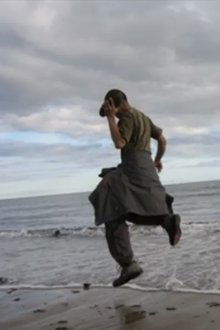
The Rock Tours Around Great Britain, 2006-2007 (2007)
The Rock Touring Around Great Britain is a performance piece by Chinese artist He Yunchang that involved a walking circumambulation of Great Britain from September 23, 2006 to June 14, 2007. Starting from the hamlet of Rock, Northumberland, the artist walked to the nearby town of Boulmer where he selected a rock which he then carried counterclockwise until he returned it to the precise location from which it was taken. As the artist commented, the work was primarily "an attempt to represent the iron will of an individual and the living conditions of his being with simple and pure methods."

The 50 Year Argument (2014)
Follows the waves of literary, political, and cultural history as charted by the The New York Review of Books, America’s leading journal of ideas for over 50 years. Provocative, idiosyncratic and incendiary, the film weaves rarely seen archival material, contributor interviews, excerpts from writings by such icons as James Baldwin, Gore Vidal, and Joan Didion along with original verité footage filmed in the Review’s West Village offices.
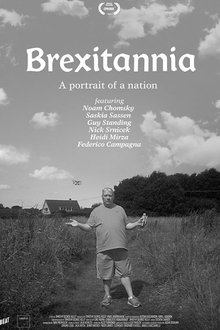
Brexitannia (2017)
A sociological portrait of the United Kingdom after the historic Brexit vote of 2016. A funny, sometimes terrifying and non-judgemental look at the new populist politics sweeping western democracies.
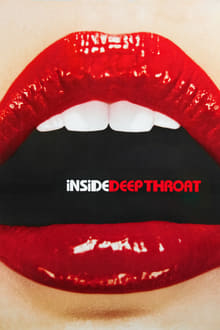
Inside Deep Throat (2005)
In 1972, a seemingly typical shoestring budget pornographic film was made in a Florida hotel: "Deep Throat," starring Linda Lovelace. This film would surpass the wildest expectation of everyone involved to become one of the most successful independent films of all time. It caught the public imagination which met the spirit of the times, even as the self-appointed guardians of public morality struggled to suppress it, and created, for a brief moment, a possible future where sexuality in film had a bold artistic potential. This film covers the story of the making of this controversial film, its stunning success, its hysterical opposition along with its dark side of mob influence and allegations of the on set mistreatment of the film's star.
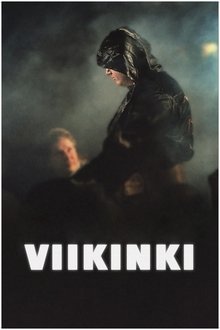
Viikinki (2022)
Documentary film about Tony Halme, masculinity and populism. The film follows how Tony Halme created a mythical, highly masculine freestyle wrestling character, The Viking, who gained fame both in the ring and in the public eye and eventually became captivated by it. With his brash speeches, Halme fired the starting shot for the rise of the Finns Party. The voice of a forgotten section of the population, a protest against the ruling elite, were the building blocks of Halme's popularity. Halme's great popularity has served as a good example of a populist figure, admired within the deep ranks of the nation, who comes from outside the political elite and changes the direction of politics. Also, despite - or perhaps because of - his openly racist statements, he was part of changing the political climate in Finland to a more acrimonious one.
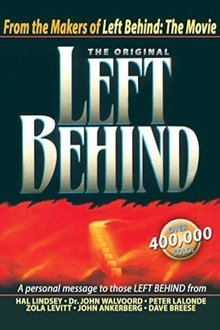
Left Behind (1994)
Leading biblical scholars and religious experts discuss the implications of the Rapture, when prophecies predict that Jesus Christ will return to Earth and his true believers will be transported to meet him.
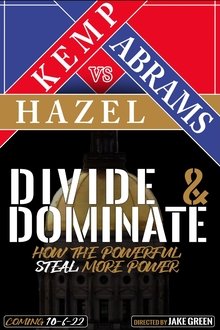
Divide & Dominate: How the Powerful Steal More Power (2022)
Money, Media, and Legislation. Using these three means, your livelihood is being subverted and coopted by politicians and their cronies... and it's only getting worse. This documentary gives you a front row seat to the methodically planned and perpetual corruption of our "democracy." It's about time we fought back. Go to peacefulseaproductions.com to learn more and explore our other films and media. Featuring: Shane Hazel Spike Cohen Angela McArdle Gerred Bell Martin Cowen Narrated by Robbie Bernstein Produced & Directed by Jake Green Produced by Nikki Tomlinson Animator: Greg Fisher Composer: Geoffrey Burch Title and Credits Songs by Casey Sabol Additional Music by Jay Denton & ENDURE Studios
